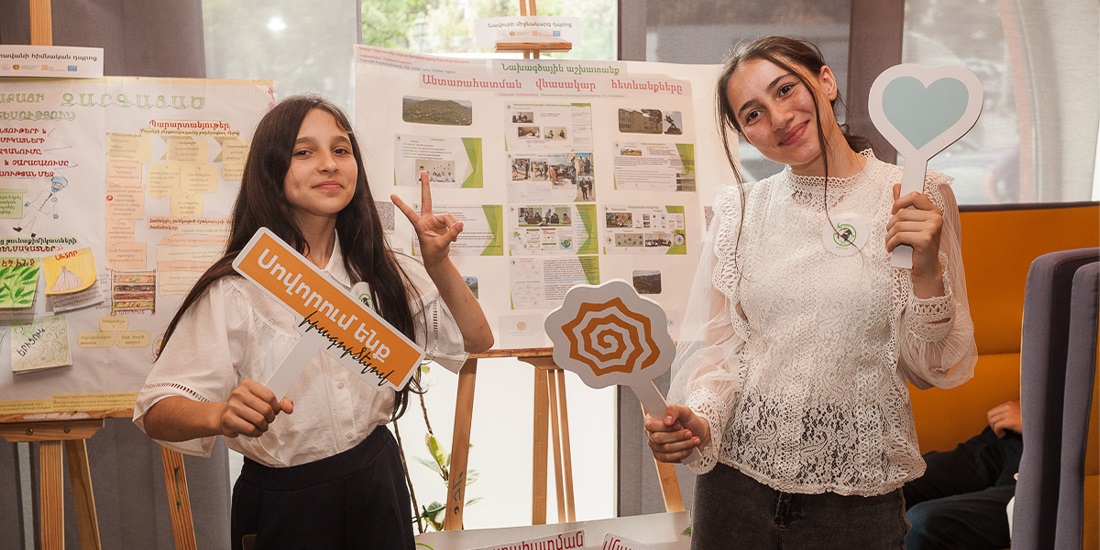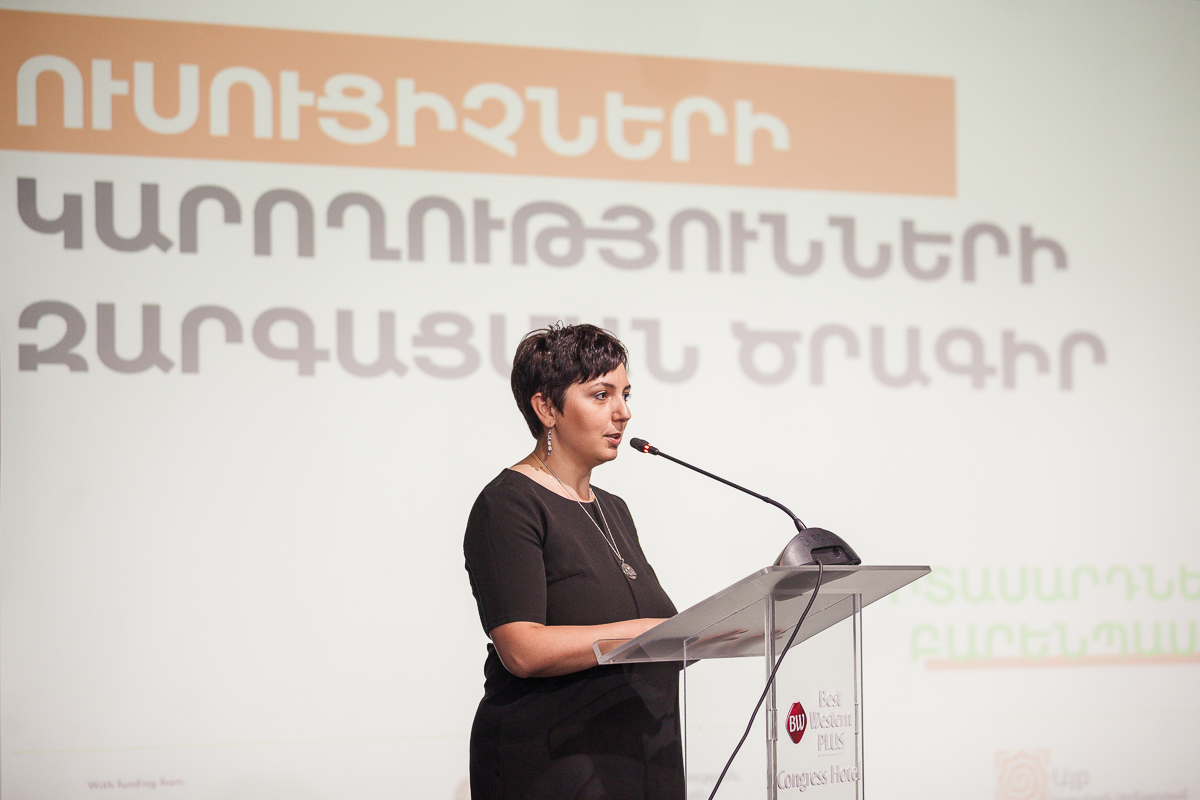Teachers and Students Implement Project-Based Learning on Environmental Issues in Six Regions of Armenia

UNICEF and the Ayb Education Foundation concluded the results of Armenia’s first massive endeavor to use project-based learning in six marzes to tackle climate change and environmental issues. The aim of the initiative, implemented with the support of the Austrian Development Agency and in coordination with the RA Ministry of Education, Science, Culture and Sports, was to equip teachers of 7-11 grades with essential knowledge on project-based learning and climate change issues to tackle environmental issues faced by communities in Tavush, Syunik, Gegharkunik, Lori, Shirak, and Vayots Dzor marzes.
“Becoming more and more aware of the environmental issues and climate change is extremely important. Climate change may still feel like a distant problem, but it is very real and already tangible in many ways. No one is more affected by a changing climate and its implications than children and adolescents, which is why it’s crucial to engage with adolescents at the community level to drive climate action for a better future. UNICEF commends the important decision of the Ministry of Education, Science, Culture and Sport to include green education in the State Education Development Programme until 2030 and to include climate change and green skills as a cross-cutting theme in the state education curriculum,” noted Silvia Mestroni, Acting Representative of UNICEF in Armenia.
Over the course of this program, a total of 376 teachers from 272 settlements in the six marzes actively participated in the training conceptually designed for them to gain a thorough understanding of the content and structure of project-based learning methods. During five months of intensive online and offline training, teachers managed to deeply indulge in the steps of project-based learning, later bring out their own ideas, and start developing them with their students. Parallelly training has been arranged for 20 groups of teachers. Overall having 180 hours of face-to-face and 260 hours of online training on project-based learning and 120 hours of online training tackling the topics of climate change issues. Moreover, all the mentors have had additional training specifically designed for them. As a result, under the guidance of experienced mentors, teachers successfully applied their acquired knowledge, engaging 2015 students to implement 275 projects that solve their local environmental issues.

At the Ayb Educational Foundation, we continuously plan, localize and implement leading learning approaches of the world with a strong faith in our mission of spreading high-quality education in our country. Ayb has exceptional experience in project-based learning. It has been effectively applied at Ayb School since 2015 and is one of the key components of the Ayb Hybrid Learning program. I highly believe that the knowledge investment in teachers will help them form new ways of thinking, mastering new methodologies, and lead them to systematic changes. Now, I’m more than sure that the skills and experience gained will help them in September with new educational standards,” stated Sona Koshetsyan, the executive director of the Ayb Educational Foundation.
During the closing ceremony, both teachers and students showcased their completed works, sharing insights on the knowledge they had gained throughout the program. The projects focused on a wide range of environmental issues, including waste collection and recycling, deforestation, tree planting mining emissions, etc.
"The issue of deforestation has become a matter of utmost importance for our village, and this year, it has reached an alarming scale, causing tangible negative impacts on our environment. In response, we mobilized our students to design a compelling project aimed at establishing a park near our school. The outcome is a well-defined initiative with clear steps, all developed by our determined students," shared Tigran Hovsepyan, a teacher from Darbas village in Syunik Marz.
Meanwhile, in Nahapetavan village (Shirak Marz), another team focused on addressing the same issue by planting 100 trees near their school.
.jpg)
In the city of Yeghegnadzor, a passionate team took up the challenge of combating air pollution.
"Our objective was to tackle the town's air pollution problem arising from the burning of garbage. To find a solution, we brainstormed several approaches, proposing efficient waste collection and recycling methods. Collaborating with 15 dedicated students, we delved into three key areas: researching the issue, raising awareness, and offering practical solutions. Recognizing the crucial role of creating awareness, we conducted informative training sessions for residents and students, showcasing alternative ways to utilize waste instead of burning it. As a striking example of effective garbage recycling, we repurposed paper waste to craft garbage cans that now is widely used in school. This project has deeply impacted our perspectives, prompting us to view things through an environmental lens, fully embracing our responsibility for the world we inhabit," shared students from Yeghegnadzor's primary school.